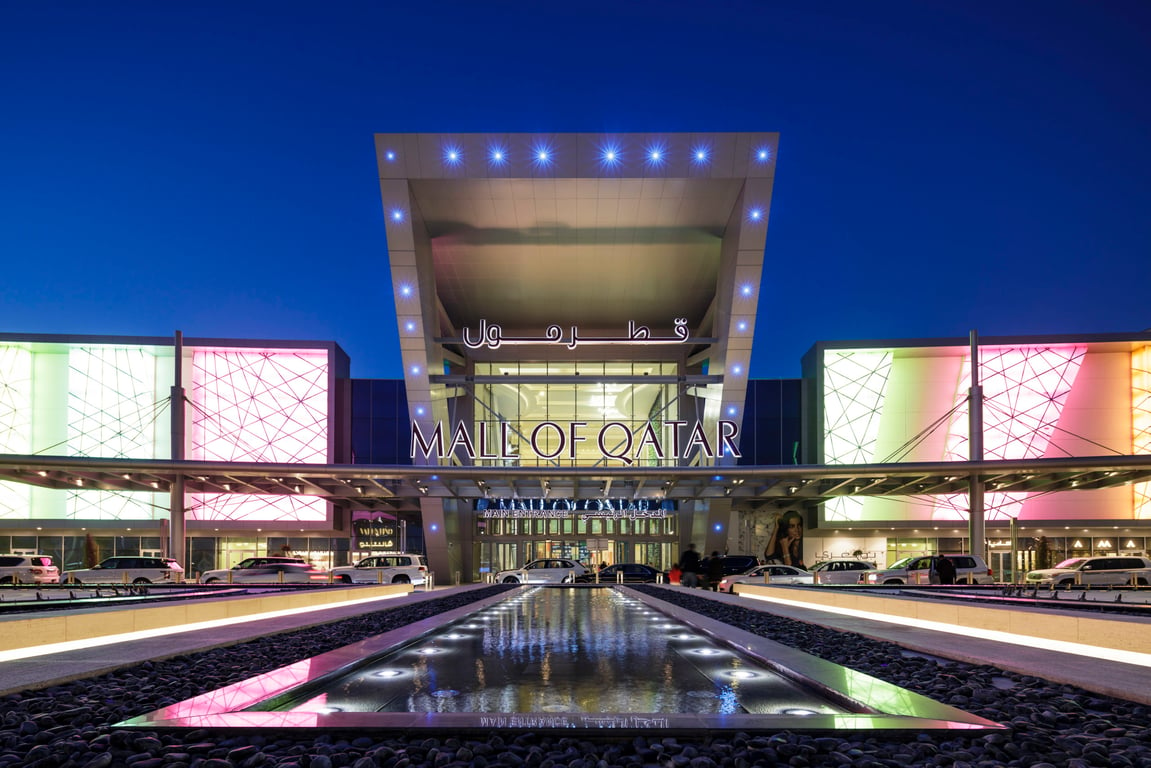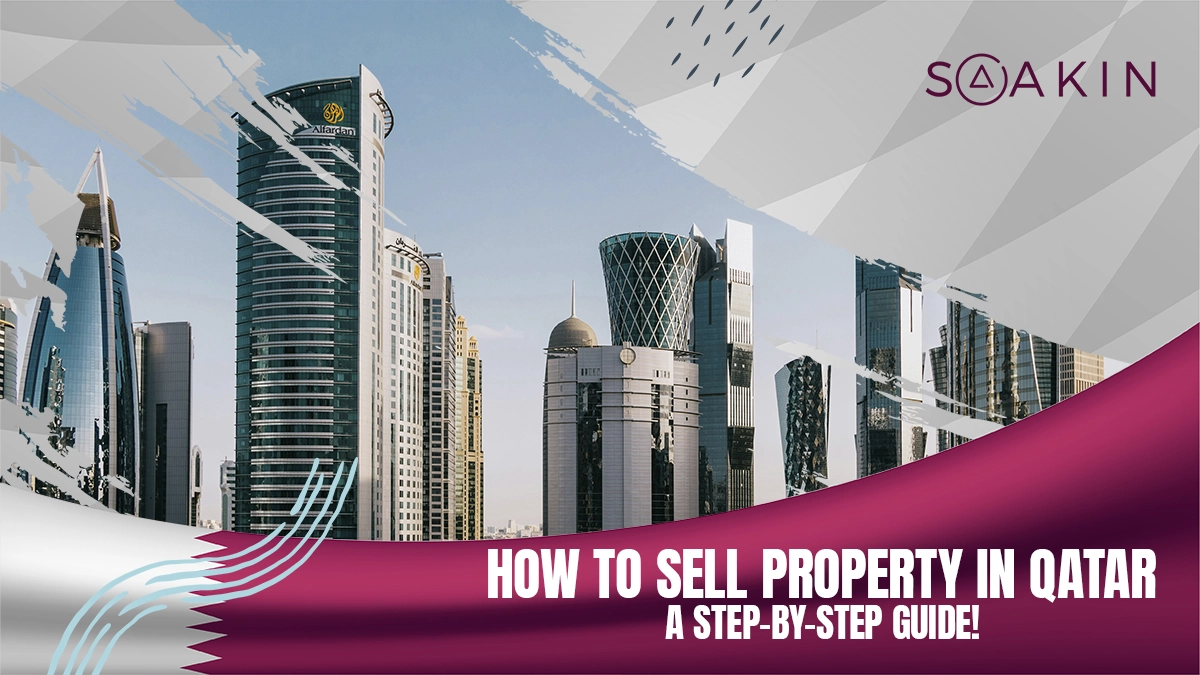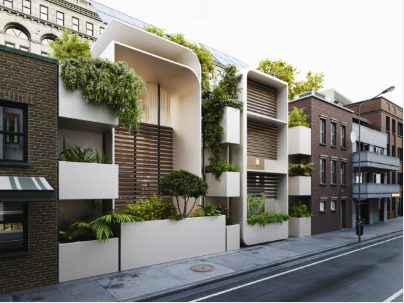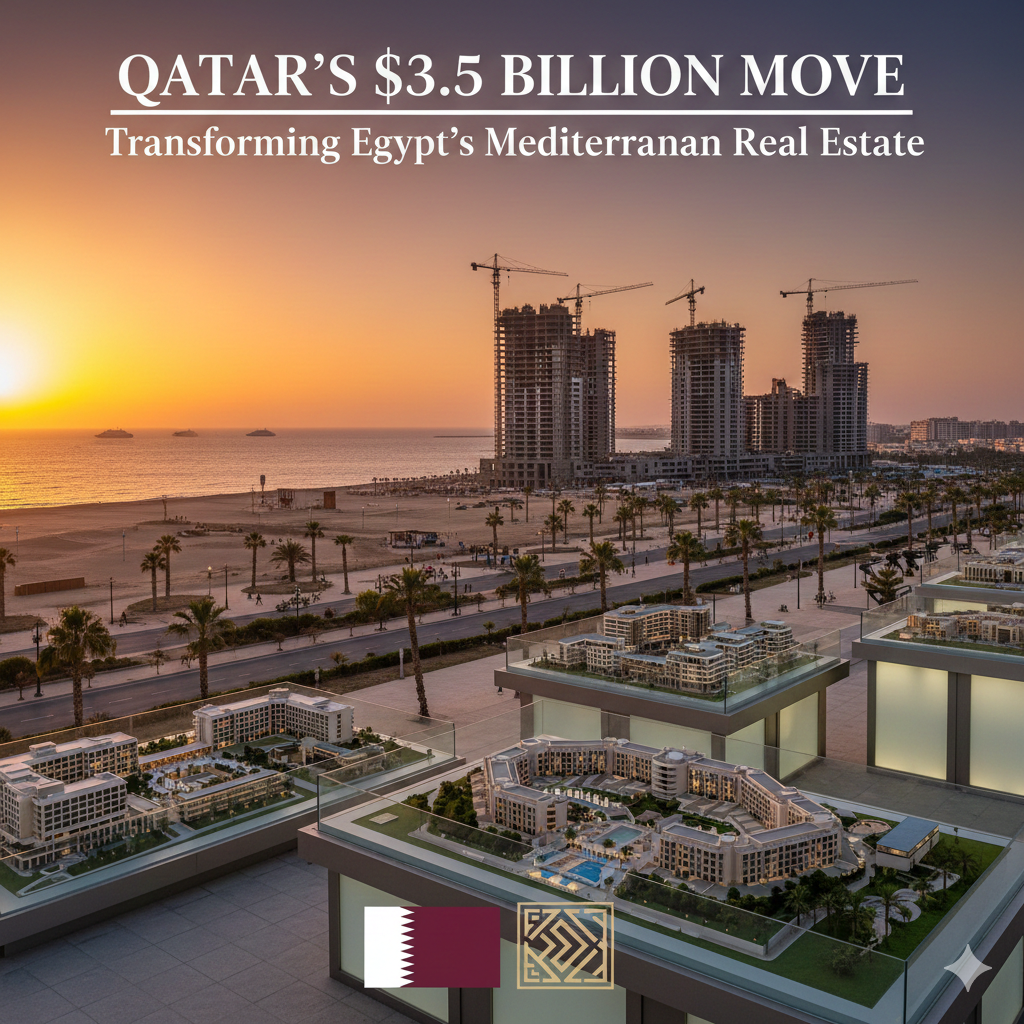Qatar is the world's fastest-growing economy, and its real estate market mirrors its rapid expansion. Navigating the real estate landscape in Qatar presents many challenges for prospective buyers. With its rapidly growing economy and evolving property market, securing a property in this Middle Eastern hub demands a sharp understanding of its unique regulations.
From intricate legal procedures to dealing with fluctuating market trends, buyers in Qatar encounter limitations at every turn. Factors such as foreign ownership restrictions, fluctuating property prices, and varying quality standards further complicate the purchasing process for anyone looking to invest in Qatar's dynamic real estate sector.
Expatriates can buy property in Qatar in specific areas called "investment areas." To buy property, expatriates usually need approval from the Ministry of Justice and other government bodies. Understanding the terms in property contracts and any new laws that might affect expat property ownership is important. The real estate market in Qatar is growing fast and offers many investment opportunities.
Legal framework for property ownership for expats

The legal framework for property ownership for expatriates is determined clearly. Expatriates can own property outright or through certain legal structures, such as leasehold arrangements or setting up a corporation to hold property.
Moreover, legal requirements for property ownership by expatriates may include:
- Obtaining residency permits or visas.
- Adhering to specific tax regulations.
- Fulfilling certain financial criteria.
Qatar allowed non-Qatari citizens to invest in specific parts of real estate in 2004.These areas include the Pearl, West Bay Lagoon, and some parts of Al Khor. According to this law, non-Qataris can own land and homes in these areas without any time limit.
Also, non-Qataris can get rights to use land for 99 years in certain investment zones, which can be renewed later. These zones are listed in Law No. 6 of 2006 and include places like Msheireb, Fariq Abdul Aziz, and Al Ghanim Al Atiq. Other areas where this is allowed are Al Rifaa/Al Hitmi Al Atiq, Al Sulta, Bin Mahmoud, Rawdat Al Khail, Al Mansoura/Bin Dirham, Najma, Umm Ghuwailina, Al Khalifat, Al Saad, Al Mirqab Al Jadeed/Al Nasr, Doha International Airport, Al Qusar/Al Dafna/Onaiza, and Lusail/Al Khuraj/Jabal Thailab.
Qatar's investor-friendly policies allow foreigners to freely transfer their earnings abroad, fostering a stable financial environment. In 2020, Qatar introduced residency permits for real estate investors, offering residency rights for investments over QAR 1 million. Extended residency permits and multi-entry visas further incentivize substantial investments, making Qatar an attractive destination for investors.
Challenges Faced by Property Buyers
Qatar's real estate market is primarily driven by expatriates, who comprise a significant portion of the population. As such, regulations govern property ownership and investment for locals and foreigners. However, these regulations can be complex and subject to change, requiring thorough research and due diligence from potential buyers.
Legal Framework and Ownership Restrictions:
Qatar's legal framework for property ownership is rooted in Islamic law and is governed by various regulations and laws. In specific areas, like Pearl-Qatar and West Bay Lagoon, non-Qatari nationals are allowed to own real estate, but there are limitations and guidelines that must be followed. Understanding these restrictions, such as leasehold agreements and ownership limitations, is essential for prospective buyers to avoid legal complications.
Foreign Ownership Regulations:
Non-Qatari nationals are generally restricted to freehold ownership in designated areas, with leasehold arrangements being more common in other areas. These restrictions can impact property prices and investment opportunities, as freehold properties may command higher premiums. Moreover, changes in regulations or government policies can affect foreign ownership rights, necessitating a cautious approach when investing in Qatari real estate.
Market Volatility and Pricing:
Like any other, Qatar's real estate market is susceptible to fluctuations in supply and demand, economic factors, and geopolitical dynamics. While the market has shown resilience in the face of global economic challenges, such as the COVID-19 pandemic, uncertainty remains a constant factor. Property prices can vary significantly depending on location, amenities, and market trends, making it essential for buyers to conduct thorough market research and seek expert advice.
Financing and Mortgage Challenges:
Securing financing for property purchases in Qatar can be challenging for non-residents, as banks may impose strict requirements and limitations on mortgage lending. Additionally, interest rates and terms may differ from buyers' home countries, necessitating careful consideration and financial planning. Exploring alternative financing options and consulting with financial advisors can help buyers navigate this purchasing process effectively.
Limited mortgage options and high down payment requirements divert expats' investing ability. Currency exchange fluctuations add financial uncertainty, requiring careful planning to mitigate potential losses.
Residency Requirements in Qatar
Non-Qataris can only own property in designated freehold areas, subject to residency criteria and visa restrictions. Limited availability in these areas impacts property options and prices, necessitating careful consideration.Understanding residency requirements and the difference between leasehold and freehold ownership is crucial. Complex legal procedures demand expert assistance to ensure compliance and mitigate the risks associated with documentation errors.
Cultural and social considerations:
Qatar's cultural and social norms play a significant role in real estate transactions, particularly regarding negotiation strategies and business etiquette. Building rapport and trust with local stakeholders, including real estate agents and developers, is essential for successful transactions. Moreover, understanding and respecting cultural sensitivities can facilitate smoother interactions and negotiations, contributing to a positive purchasing experience.
Strategies for Overcoming Challenges:
Conduct comprehensive research.
Before entering the Qatari real estate market, buyers should invest time and effort in researching relevant laws, regulations, and market trends. Engaging with reputable real estate agencies, legal advisors, and financial experts can provide valuable insights and guidance tailored to buyers' needs and preferences.
Seek professional guidance.
Collaborating with experienced real estate agents, lawyers, and financial advisors familiar with Qatar's market can help buyers navigate legal complexities, negotiate favorable terms, and make informed decisions. These professionals can offer invaluable support and expertise throughout the purchasing process, from property search to closing.
Diversify your investment portfolio.
Given the inherent risks and uncertainties in any real estate market, diversifying investment portfolios can help mitigate potential losses and maximize returns. Exploring diverse property types, such as residential, commercial, and mixed-use developments, can provide investors with a balanced portfolio and exposure to different market segments.
Stay Informed and flexible.
Qatar's real estate market is dynamic and subject to change, requiring buyers to stay informed about regulatory updates, market trends, and economic developments. Maintaining flexibility and adaptability in investment strategies can help buyers capitalize on emerging opportunities and handle challenges.
Eligibility for Buying Property in Qatar
To live in Qatar as a resident through real estate, you need to meet certain rules. If you want to get residency, the property you buy must be worth more than QR 730,000 (that's seven hundred and thirty thousand Qatari riyals). This means you must invest a lot in Qatar's property market. Suppose you are looking for permanent residency and all its benefits. In that case, the property you buy must be worth more than QR 3,650,000 (that's three million, six hundred and fifty thousand Qatari riyals). This shows a bigger commitment to living in Qatar for a long time.
If the property you are interested in costs less than QR 730,000, non-Qatari people can still buy it, but they won't be able to get residency. This shows that buying property is closely linked to getting residency in Qatar. Different places have different prices for houses. For example, in Pearl Qatar, one square meter can cost between QR 12,000 and 25,000 (around USD 3,200 to 6,800). In Al Sadd, it is between QR 7,500 and 8,500 (about USD 2,000 to 2,300) per square meter.
There are rules if you want to get a loan from a bank to buy a house:
- The longest time you can take to pay back the loan is 20 years. Also, by the time you finish paying back, you shouldn't be older than 65.
- You can't borrow more than 70% of the house's value. Each bank has its own limit on how much it will lend you, which can be between QR 3 and 4 million, depending on the bank and the type of loan.
- You need to pay 30% of the house's value upfront as a down payment.
- You can spend up to half of your monthly income on paying back the loan.
Time Required to finalize property transactions in Qatar
Once you have agreed on a purchase contract with the seller, the property purchase concludes within a month or even less. Subsequently, the next stage involves registering your property with the Real Estate Registration and Authentication Department, a division of Qatar's Ministry of Justice. This registration process generally takes around 10 to 15 business days.
Expatriates who successfully complete all the steps of property ownership are automatically granted either temporary or permanent residency. Moreover, residency privileges can be extended to eligible immediate family members of the property owner.
Qatar wants people to invest heavily in its property market. By setting these minimum property value rules, it hopes to attract people who will help its real estate sector grow. By allowing higher-value property purchases, it provides opportunities for long-term residency and investment.
About Housing Market
Statista says Qatar's housing market is set to grow a lot. By 2024, it could be worth $2.10 billion. It is expected to grow by about 4.87% annually until 2028, reaching around $2.54 billion. This growth is because more foreigners are investing in Qatar, and the government is working to help the market grow.
Qatar's housing market has been getting bigger lately because the country's economy is doing well. It is building many new things, like roads and buildings, and more people are visiting for tourism. Qatar has a mix of modern and traditional buildings, especially in its capital city, Doha, where they are building many homes, offices, and places for both. Qatar has a big plan called Vision 2030 to make its economy more diverse and sustainable.
Explore the Best Properties for Sale in Qatar with Saakin
Saakin Qatar is recognized for offering an extensive selection of prime properties for sale in Qatar, offering diverse choices and requirements. With a commitment to excellence and a deep understanding of the local real estate market, Saakin Qatar ensures that each property listed embodies quality, luxury, and value. Whether you are seeking a modern apartment in Doha's bustling city center, a luxurious villa in a prestigious residential community, or a seaside retreat with stunning views of the Arabian Gulf, we provide access to the country's best properties.
Moreover, Saakin Qatar prioritizes transparency, integrity, and personalized service throughout the buying process, guiding clients step-by-step from property selection to closing. With us, you can trust that you are not just buying a property but investing in a lifestyle of luxury and refinement in one of the Middle East's most dynamic and culturally rich countries. Discover the best properties for sale in Qatar with Saakin Qatar and start your career as an investor in Qatar.
Conclusion
Understanding property ownership rules is necessary for expatriates considering investments or residency in Qatar. Although non-Qataris can't directly own land, they can buy property in certain zones, like the Pearl-Qatar and West Bay Lagoon. Knowledge of legal frameworks, taxes, and residency requirements is essential for compliance and risk management. Familiarity with property ownership rules helps expats make investment choices, navigate bureaucracy efficiently, and protect their interests. Staying updated on property regulations and seeking professional advice enables expats to seize Qatar's real estate opportunities while minimizing risks.
FAQs
Should you opt for off-plan buying or engage a Qatari real estate agency when purchasing property in Qatar?
To buy property in Qatar, consider off-plan buying or using a real estate agency. Off-plan purchases offer potential discounts and flexible payment plans but can involve hidden fees and construction delays. Working with a Qatari real estate agency provides hassle-free guidance, though commissions apply. Agents assist with navigating regulations and ensuring a smooth buying process, making the fees worthwhile for expat investors seeking convenience and expertise.
Can foreigners buy property in Qatar?
Yes, foreigners can buy property in Qatar in designated areas. The government has made provisions for non-Qatari citizens to own real estate in specific areas, primarily in designated residential projects known as "Real Estate Ownership for Non-Qataris." However, regulations and eligibility criteria apply. Consult legal experts familiar with Qatari property laws for detailed guidance.
What types of properties does Saakin Qatar offer for sale?
Saakin Qatar specializes in a wide range of premium properties for sale in Qatar, including luxurious apartments, elegant villas, beachfront residences, and exclusive penthouses.
How does Saakin Qatar ensure transparency in the buying process?
Saakin Qatar prioritizes transparency at every stage of the buying process. The real estate agents provide comprehensive guidance, ensuring clients can access accurate information about properties, pricing, and legal requirements. They even connect buyers with sellers and property management companies.
Can I get Qatari residency by buying a property?
Yes, purchasing property in Qatar can qualify you for residency under certain conditions. The government offers residency permits to property owners, primarily through the "Real Estate Ownership for Non-Qataris" program. Owning property in designated areas can enable you to apply for residency permits, granting you the right to live and work in Qatar. However, specific eligibility criteria and regulations apply, so it's essential to research thoroughly and seek professional advice.
Where can expats buy property in Qatar?
Expats can buy property in designated zones in Qatar, such as The Pearl Island, West Bay Lagoon, Lusail City, and Al Khor. Pearl Island offers luxurious waterfront properties, while West Bay Lagoon features upscale villas and apartments. Lusail City is known for its modern infrastructure and sustainability. Each zone has unique offerings, so research and professional guidance are essential to finding the right property.
What are the areas where foreigners can own freehold properties in Qatar?
- West Bay Lagoon
- Lusail
- Pearl
- Al Khor resort
- Al Dafna (Administrative area 60)
- Al Dafna (Administrative area 61)
- Onaiza (Administrative area 63)
- Al Kharaej
- Jabal Thuaileb
What are 16 locations where expats can buy leasehold properties?
- Msheireb (Area 13)
- Fareej Abdulaziz (Area 14)
- Al Doha Al Jadeeda (Area 15)
- Al Ghanim Alateeq (Area 16)
- Al Rifaa and Old Al Hitmi (Area 17)
- As Salatah (Area 18)
- Bin Mahmoud (Area 22)
- Bin Mahmoud (Area 23)
- Rawdat Al Khail (Area 24)
- Al Mansoura and Fereej Bin Durham (Area 25)
- Al Najma (Area 26)
- Umm Ghuwailina (Area 27)
- Al Khulaifat (Area 28)
- Al Sadd (Area 38)
- Al Mirqab Al Jadeed and Fereej Al Nasr (Area 39)
- Doha International Airport (Area 48)
Read More: Is It Worth Buying Property in Qatar?
Comments
No comments yet.
























